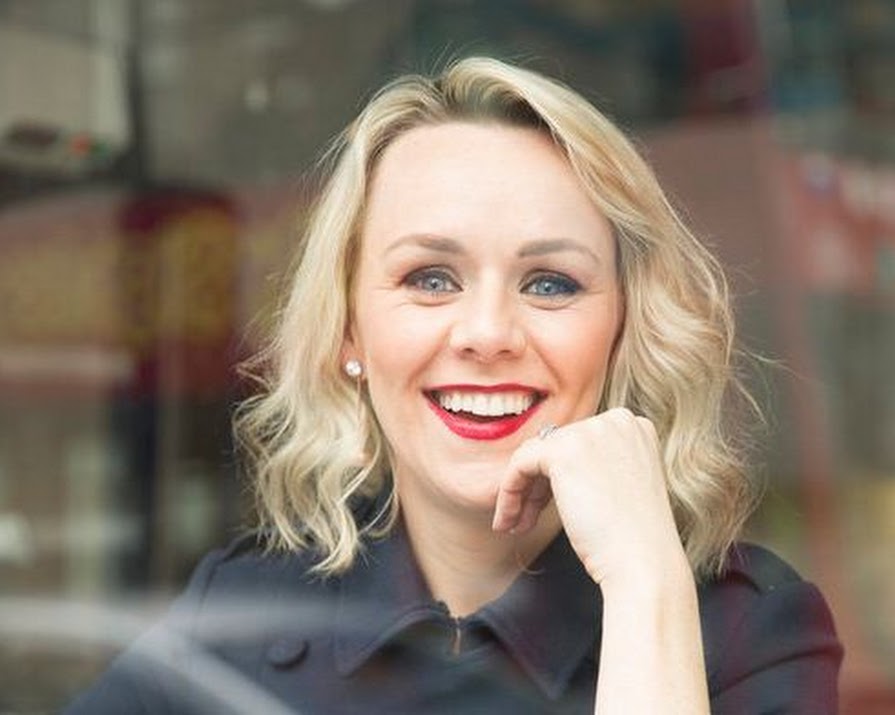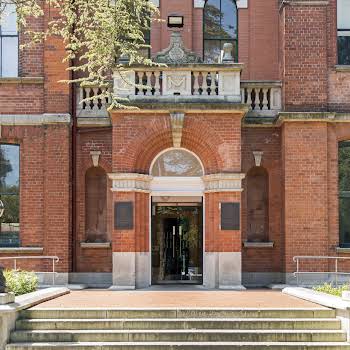
By IMAGE
13th Jun 2018
13th Jun 2018
Career psychologist and founder of A Career to Love Sinéad Brady series sat down with IMAGE ahead of her appearance at our Networking Breakfast on June 22nd to talk job changes, the future of work and work/life balance.
What are your predictions for the future of work?
The rate at which the global jobs market is changing is both mind-blowing and exciting. Just think; 65% of the jobs children entering primary school today will do are not yet created. By 2020, about 5 million jobs will be lost to artificial intelligence, but 2.1 million completely new jobs will be created. Change is the new permanent in the 21st-century workplace, so predictions are a challenge but here goes:
- A massive mindset shift about how we work will occur. Working in one industry for life based on a single qualification completed after school is all but obsolete. In the very near future, we will all have to continuously upskill, reskill and retrain to meet the needs of the job market.
- People will be hired based on their skill sets and how they can apply them to a particular project, rather than on previous job titles.
- The lines between being employed or self-employed will absolutely blur. Instead, we will jump between periods of self-employment, part-time work, full-time employment, part-time education, full-time education freelancing, consultancy work, and working remotely.
- As people live well into their 80’s and 90’s, they will continue to contribute to the workplace beyond the age of 65. This means we will see five generations of workers work side by side with retirement becoming a thing of the past.
- Increasingly, we will work in workplaces where 3D virtual meetings with avatars are the norm!
Through your consulting, what changes do you see people leaning towards?
As we emerge from the recession across all levels, I am seeing people making very brave choices to change. So from directors to recent graduates to stay-at-home parents returning to the workplace, many are choosing to invest their time, money and energy in retraining, upskilling or reskilling now. Considering that we are likely to work well beyond retirement, many are accepting change now rather than the prospect of being unhappy in work. Clients see it as an investment in their future.
While, on the other side, the innovative corporates and large organisations I work with are strategically addressing the future skills shortage they know is coming. Increasingly, they are putting in place workplace coaching strategies to help them better support their employees and to increase their understanding of the 21st-century world of work. Many are providing monthly facilitated conversations around employee productivity, output and engagement while also providing strategic external career coaching to help them retain their top talent.
How do you inspire people you talk to, to force a change in their careers (if they are unhappy and stuck in a rut)?
I inspire through direct, clear, impartial, supportive and practical advice. Everything that I do with every person or every organisation is done against the backdrop of the 21st-century world of work and grounded in best practice in psychology. So I am very clear that there are no quick fixes, no leaps and no overnight changes.
Rather, change is viewed as a gradual process arrived at through effortful and thoughtful hard work.
As such, I challenge self-limiting thoughts, words and behaviours while working to identify a strong strategic progression plan. Each strategic plan addresses acknowledged worries, potential setbacks and identified issues and is based on identified, core non-negotiables. Through this process, change happens almost naturally.
To you, what makes for a happy career?
That’s such a tricky question, as a happy career means something different to everybody. People happiest in their career seem to have more energy and more time than others. Time and energy, at the end of the day or end of the week, to give to the important people in their lives and themselves for their hobbies and interests. When you chat to people happy in their career, they could talk about what they do all day. They are hungry for the next project and feel that they thrive rather than survive at work. They are stretched not stressed, face challenges with an openness to learn, recover from setbacks through evaluation and have an intrinsic sense of accomplishment.
We change so much as people as we go through our lives – how do we manage to evolve our career path as we evolve ourselves?
Change is the new permanent so growing with your career is vital. Given that we are constantly ‘switched on’ and connected, it is crucial to keep your finger on your career pulse. Ideally, we should all do our own performance reviews which I call momentous moments. These are the significant things you achieved, learned from or engaged with professionally in the past week or month. By recording your professional development, keeping tabs on your goals and acknowledging achievements, you are keeping an eye on your career. Review your momentous moments quarterly. Take an overview of what makes you happy and what you have achieved. This way, you identify if you need to change, progress, pivot, transition or continue as you are in your career in the context of your personal growth.
What factors cause both the most career happiness and career negativity, in your view?
Career happiness and negativity are the opposite sides of the same coin and, for most, they centre around the level of connection felt with who, what, where and how you engage with your career.
Happiness is derived from having a role you consider as meaningful and in which you experience a connection with your co-workers and senior managers. You know your employer trusts you to do a good job. You are respected, listened to and treated fairly. You can offer your opinion or advice, irrespective of your seniority and feel that if you make a mistake, you will be supported. You are challenged and stretched; you have the opportunity to progress and the flexibility to do your work. Finally, you have fun.
Career negativity stems from a loss of the connection with who, what, where or how you do your work. You feel under-resourced, overworked and underappreciated. You no longer enjoy the core function of what you do day-in-day-out. You feel unfairly treated; you cannot be yourself at work; you are micromanaged, and you have too much, or not enough, responsibility.
We know the term ‘work/life balance’ is a bit hackneyed, but for working mum’s – what kind of set up works best in your view (non-negotiables we spoke of, etc.)
Work life balance is like trying to apply a mathematical equation to life and for me, it just doesn’t work. As a mum to two busy little ladies, my 3 & 4-year-old daughters, the notion of balance is oppressive. I sometimes struggle to find the time to drink a cup of tea or eat let alone balance things. Instead, I always ask people to figure out their non-negotiables. These are the specific things fundamental to your enjoyment of life. When present, you feel a sense of content happiness. When they slip, you may not notice what is wrong but, you feel compromised and uneasy. Broken down into three areas namely personal, professional and lifestyle, they are the basic things you need to feel a sense of blend between life and work.
No more than 2 or 3 items under each heading. Identifying your non-negotiables is about letting go of some stuff. Instead of trying to do everything, figure out what is most important to you and prioritise those specific things. Don’t beat yourself up if you don’t stick to them. Instead, check in with yourself as to why you may, or may not, have stuck to them. Figure out what happened and try to do something different next week to improve.





















